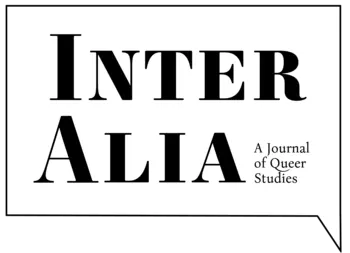https://doi.org/10.51897/interalia/OKAD1849
Instrumental Trouble: A Queer Organology of Hugh Davies’s Found Instruments
Settimio Fiorenzo Palermo
https://orcid.org/0000-0003-2035-6517
Middlesex University London
Abstract
Organology, the study of musical instruments, has traditionally concentrated on the documentation of instruments: their history, roles in culture, and classification. However, as post-modern, feminist, and post-colonial perspectives have questioned some of the assumptions inherent in historiographical, ethnographic, and positivist endeavours because of their part in reproducing hegemonic ideologies, re-thinking organology and thus developing a richer account of musical instruments has become an urgent task. With this regard a queer perspective in organology, in particular informed by Judith Butler’s theories of “gender trouble,” is crucial in agitating normative beliefs, values, and attitudes that underpin notions of instrumental identity, interaction, and meaning. A queer organology becomes especially significant in the critical engagement with musical instruments like those invented by the British composer, performer, and inventor Hugh Davies (1943-2005), and in particular his entirely found, amplified, new musical instruments. This is because the challenges to traditional instrumental ontologies, the “instrumental trouble” that these instruments pose: reveal the boundaries of conventional organological approaches and methodologies, which are unsuitable in capturing their full significance. Deploying Butler’s concepts of recognition, performativity, and subversion in their study can thus represent an effective strategy in the development of a coherent critique of Davies’s instruments, but also in offering an opportunity to further the understanding of the fundamental importance that musical instruments play in the articulations of music, as part of what may be called an “instrumental turn.”
Keywords: organology, queer theory, Hugh Davies, Judith Butler, philosophy of the musical instrument, electronic music
